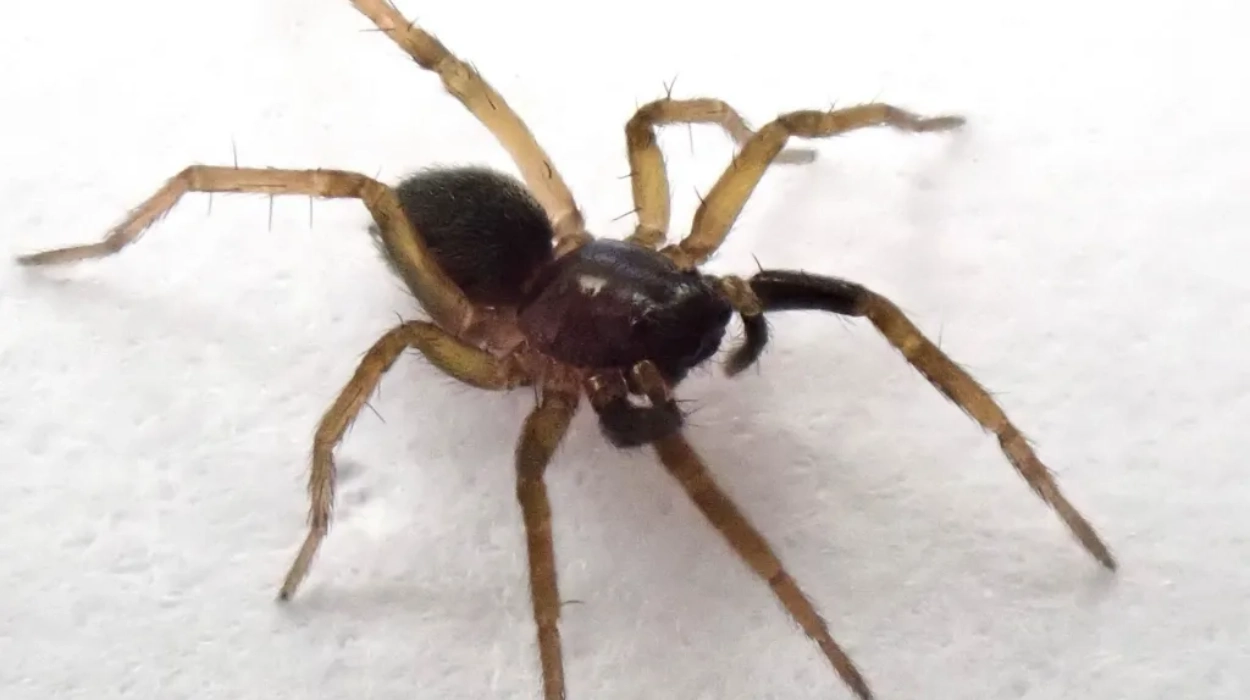United Kingdom (Parliament Politics Magazine) – A critically endangered wolf spider, Aulonia albimana, thought extinct in the UK for 40 years, has been rediscovered at the Newtown National Nature Reserve on the Isle of Wight. The discovery brings hope for conservation and highlights successful habitat management efforts.
Rediscovery of a Lost Species
As reported by Jen Mills of The Sun, the white-knuckled wolf spider, scientifically named Aulonia albimana, was found for the first time in the UK since 1985. The rediscovery occurred during a conservation survey at the Newtown National Nature Reserve, a remote and protected area only accessible by boat. The spider’s distinctive features include orange legs and light patches on its small palps near the mouth, which inspired its informal nickname due to the “white-knuckle” appearance [The Sun, Jen Mills].
Dr Helen Smith from the British Arachnological Society remarked on the rediscovery’s importance, calling it “an astonishing find and a significant success for Britain’s lost species conservation.” She emphasised how ongoing habitat protection and teamwork were crucial to this achievement.
Details of the Discovery
Mark Telfer, who led the survey, described the moment as unforgettable. He said,
“Finding a species believed lost for four decades is exhilarating. It proves how effective habitat management combined with curiosity and collaboration can lead to remarkable outcomes.”
He found the first specimen just nine minutes before the team’s scheduled departure, with a second located in the very last minute of their survey window.
His colleague Graeme Lyons contributed to the excitement by coining the “white-knuckled wolf spider” name, reflecting both the spider’s physical appearance and their narrow window of opportunity as they had only four hours at the site.
Conservation Implications
The discovery underscores the vital role of nature reserves and conservation programmes. The Newtown National Nature Reserve, managed by the National Trust and Natural England, is part of a broader initiative to protect endangered UK wildlife. The site’s protected status and limited access helped create a haven for this rare arachnid, preventing disturbances that might have led to its disappearance [Natural England].
Experts said this find is a positive indication that other supposedly extinct or critically endangered species might still survive in remote or undisturbed locations. It also strengthens calls for continued investment in habitat management and species monitoring.
About Aulonia albimana
The white-knuckled wolf spider is a small species belonging to the Lycosidae family. Its distinct orange legs and white markings on its palps help differentiate it from related spiders. It was last recorded in the UK in 1985, after which it was feared extinct due to habitat loss and environmental change.
Spider specialist Mark Telfer noted that in over 500 spider species identified in the British Isles, this rediscovery stands out as one of the most thrilling and inspiring.
Broader Context of UK Wildlife Rediscoveries
This rediscovery is part of a growing pattern of species believed extinct being found in isolated or protected areas, demonstrating the importance of conservation efforts. The British Arachnological Society and other wildlife groups highlight the need for ongoing research, public awareness, and funding to protect vulnerable species.
Future Steps and Research
The team plans to continue monitoring the population of this rare wolf spider and investigate its habitat requirements and threats. They will also raise awareness among the public and conservation stakeholders of the importance of preserving such delicate ecosystems.
Ongoing research will aim to better understand the species’ distribution and whether other populations might exist elsewhere in the UK, potentially leading to broader habitat protection initiatives.


